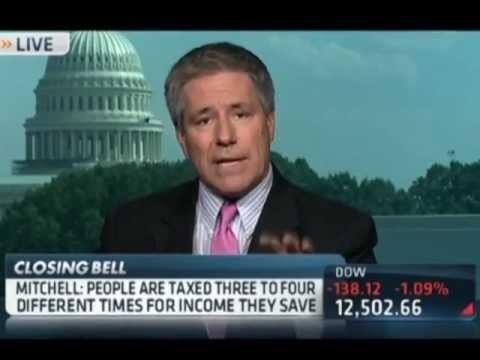Investors Need Tax Certainty
Post on: 16 Март, 2015 No Comment

Uncertainty. It’s the reoccurring theme reverberating throughout our economy at the moment. It’s on the minds of politicians, business owners, and American families. Recent economic data also suggests that uncertainty is having a material impact on growth.
Some certainty was provided to financial markets and the broader economy after the enactment of the Dodd-Frank financial reform law. More work still needs to be done by regulators in crafting the new rules the law requires, but nevertheless, the path forward is clearer than it was before Dodd-Frank became law.
But key contributors to our economy: financial markets, investors, businesses and families are still unclear over what their tax burden will be next year. Congress has an opportunity and responsibility to address this important issue before the end of the year.
Our member firms employ hundreds of thousands financial advisers that work with millions of Americans everyday to help them plan their financial future. One of the most frequent questions these advisers here from their clients is what will happen to capital gains and dividend tax rates, and how that will affect their investments.
Unless Congress acts, the taxes on capital gains and dividends will increase substantially in 2011. The capital gains tax rates would increase by as much as 33 percent, from a current maximum rate of 15 percent to 20 percent. The tax hike for dividends is even more drastic, with tax rates for many investors increasing by nearly 164 percent. These increases do not include the additional 3.8 percent tax on investment income that was already passed this year as part of the health care reform bill.
While all investors will be affected by this increase, senior citizens will be hit the hardest. According to the Tax Foundation. 42 percent of taxpayers over 65 reported dividend income on their tax returns. The vast majority of dividend income, 48 percent, is earned by those over 65, and dividend income accounts for 6 percent of all the income earned by seniors. Additionally, one-third of all taxpayers reporting capital gains income are over 65 and they earn 30 percent of all capital gains income.
Taxing investment not only hurts America’s savers and investors, it undermines potential economic growth and job creation. According to the Heritage Foundation. high tax rates on capital gains and dividends would lead to 270,000 fewer jobs in 2011 and 413,000 fewer jobs in 2018. The economic effects would be felt in take-home pay as well. Personal income after taxes would decrease by $113 billion after inflation in 2011 and $133 billion after inflation in 2012 when compared to tax rates that would have existed under the current policy. Indeed, gross domestic product (GDP) would fall by $44 billion in 2011 and $50 billion in 2012 if taxes on capital gains and dividends were left to rise to pre-2001 levels.
The numbers speak for themselves. American investors — especially seniors — are faced with potentially massive tax hikes, and time is running out. Given the still fragile state of our economy, Congress absolutely must continue the current rates on capital gains and dividends regardless of income level to provide increased certainty for American businesses and families, but for our future economic growth and job creation.
Tim Ryan is President and CEO of SIFMA the leading financial services trade group which represents hundreds of securities firms, banks and asset managers throughout the country.














